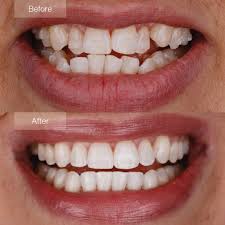Wisdom Teeth Extraction
Wisdom teeth extraction is a common surgical procedure to remove one or more of the third molars, located at the back of the mouth. These teeth often emerge in late teens or early adulthood and can cause problems such as overcrowding, pain, or infection if there isn’t enough room for them to grow properly. The extraction helps prevent complications like impacted teeth or damage to adjacent teeth. It’s typically done under local anesthesia or sedation to ensure a comfortable and pain-free experience.
Why Choose Wisdom Teeth Extraction?
Here are four reasons to choose wisdom teeth extraction:
Removing wisdom teeth can prevent overcrowding, which helps maintain proper alignment of the existing teeth and reduces the need for future orthodontic treatment.
Impacted wisdom teeth can lead to pain, infection, and damage to surrounding teeth. Extraction prevents these complications before they worsen.
Wisdom teeth that partially emerge can create pockets where bacteria thrive, increasing the risk of gum infections. Extraction eliminates this risk.
Wisdom teeth can cause pain, swelling, or pressure in the jaw as they try to emerge. Extracting them relieves discomfort and promotes better oral health.
How Does Wisdom Tooth Extraction Work?
Initial Examination and X-rays
The dentist or oral surgeon examines the mouth and takes X-rays to assess the position of the wisdom teeth and determine the best approach for extraction.
Anesthesia Administration
To ensure a pain-free experience, the patient is given local anesthesia, sedation, or general anesthesia, depending on the complexity of the extraction and the patient’s comfort level.
Extraction Procedure
The dentist makes an incision in the gum tissue to access the wisdom tooth. The tooth is then removed either whole or in sections if it's impacted, ensuring minimal disruption to surrounding areas.
Post-Procedure Care and Recovery
After the extraction, the dentist places stitches if needed and provides instructions for aftercare, including pain management, reducing swelling, and promoting healing. Full recovery typically takes a few days to a week.
Hear from Our Satisfied Patients

“I was really nervous about getting my wisdom teeth removed, but the team at ALBGTC made the whole experience stress-free! The procedure was quick, and I didn’t feel any pain thanks to the sedation. They walked me through the aftercare process, and my recovery went smoothly. I’m so glad I chose ALBGTC for my wisdom teeth extraction!”
– Jessica H.
“ALBGTC was amazing during my wisdom teeth extraction. I had all four removed, and I couldn’t believe how easy they made it for me. The staff was professional and made sure I was comfortable the entire time. I was worried about the recovery, but they gave me clear instructions and followed up to make sure I was healing well. Highly recommend!”
– Mark L.

FAQs
Wisdom teeth are typically removed in the late teens or early twenties, but your dentist will recommend extraction if they are causing problems such as pain, crowding, or impaction.
The procedure itself is not painful, as local anesthesia or sedation is used. You may experience some discomfort or swelling afterward, but this is manageable with prescribed pain medication and proper aftercare.
Most patients recover within a few days to a week. Swelling and discomfort usually peak within the first 48 hours and gradually subside, with full healing taking a few weeks.
After the procedure, it’s best to eat soft foods like yogurt, mashed potatoes, or smoothies. Avoid hard, crunchy, or spicy foods for a few days to prevent irritation or dislodging the blood clot.


